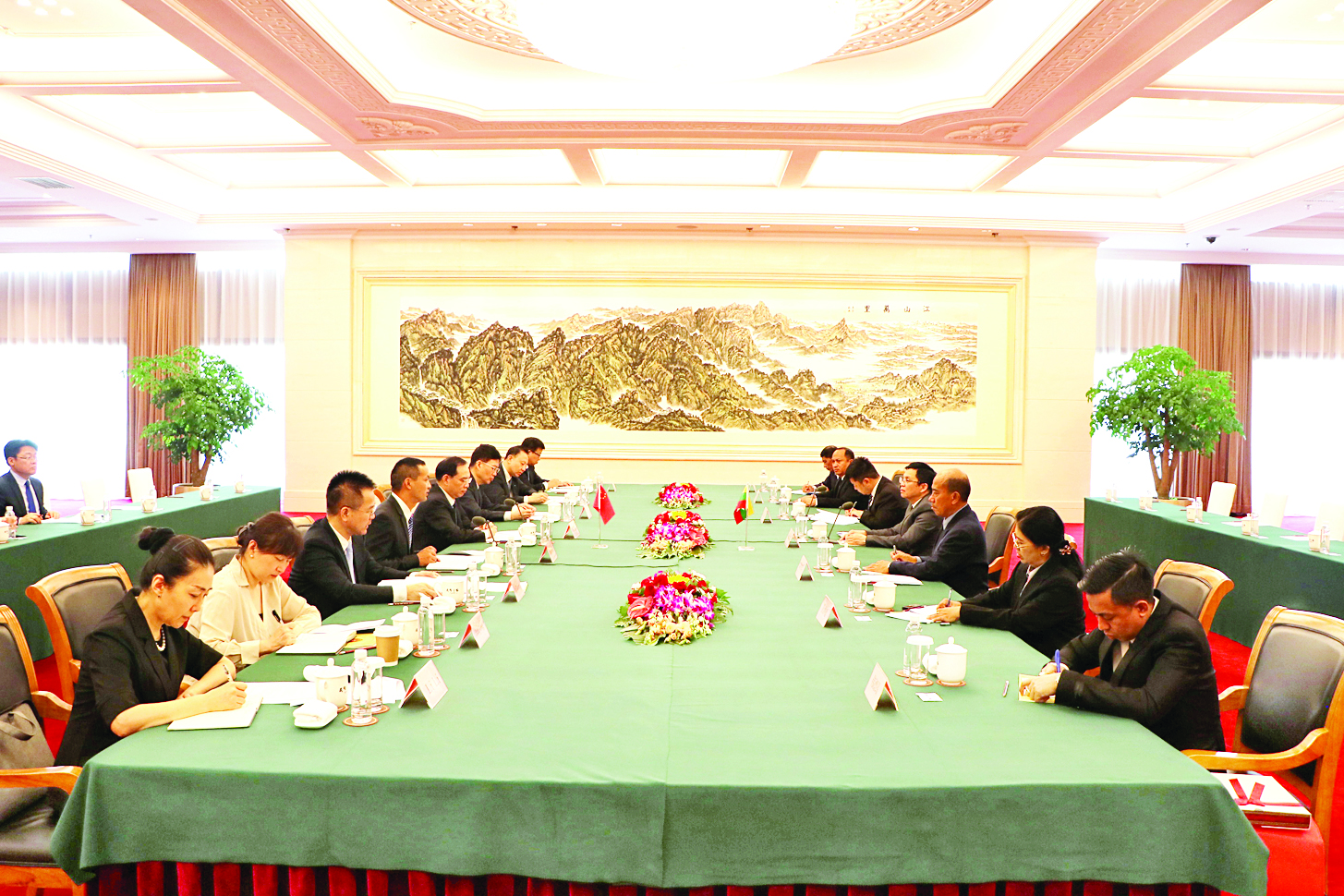Junta-appointed immigration minister Myint Kyaing visited Beijing earlier this week to seek its help in conducting the next census, and introducing an electronic-identification system in Myanmar.
The visit follows junta boss Min Aung Hlaing’s announcement that a nationwide census will take place in October next year to be followed by general elections.
Myint Kyaing met Xu Ganglu, deputy minister of the National Immigration Administration of China, on Monday. At the meeting, Xu expressed China’s full support for the regime, and explained China’s immigration policy. They discussed cooperation between their immigration agencies, and measures to systematize entry and departure at the border, according to junta media.
Myint Kyaing visited Beijing Hisign Technology Co Ltd to learn about biometric technology.
The company describes itself as “one of the most comprehensive and technologically advanced enterprises in China’s multi-biometric industry.” It produces products that many analysts say are essential to China’s emerging surveillance state. These include “facial recognition, fingerprint identification, palm-print matching, handwriting and vehicle license plate recognition” products, among many more.
Myint Kyaing also visited New Delhi in July to explore the potential for cooperation in implementing an e-identification system.

An e-identification system will enable the regime to more methodically monitor Myanmar citizens, and identify members of revolutionary forces.
Junta media outlets, however, have yet to report what, if any, agreements Myint Kyaing reached with China during his Beijing visit.
Before the immigration minister, four junta ministers, two deputy ministers, the Central Bank of Myanmar governor and a member of the junta-appointed Union Election Commission visited China, signing agreements and asking China to help the regime gain access to advanced nuclear technology.
Deputy junta chief Soe Win, who chairs the central commission to conduct the census, has said the regime would conduct the census by itself, and it would not seek technical and financial assistance from international organizations as was done in the previous census.
When Myanmar carried out a national census in 2014, the first in more than 30 years, the United Nations Population fund and several developed countries provided technical and financial support.
Now, the pariah regime is turning to Beijing for help.
On Monday, China’s special envoy to Myanmar, Deng Xiju, met junta foreign minister Than Swe in Naypyitaw. The two discussed cementing their “Pauk-Phaw” (fraternal) relationship, and increased cooperation in matters of mutual interests.
The two sides also discussed closer collaboration in both the regional and international arenas, especially ASEAN and the United Nations, according to the foreign ministry.
As the regime will only hold the poll after the national census in October next year, the election proposed by the junta is unlikely to take place until 2025.

















